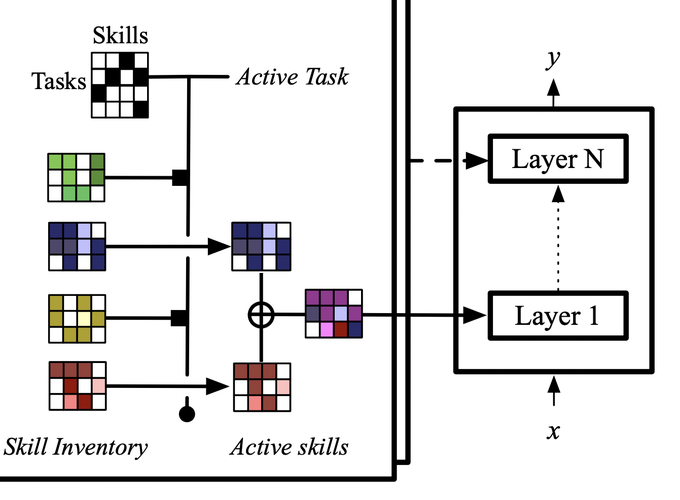Abstract
A modular design encourages neural models to disentangle and recombine different facets of knowledge to generalise more systematically to new tasks. In this work, we assume that each task is associated with a subset of latent skills from an (arbitrary size) inventory. In turn, each skill corresponds to a parameter-efficient (sparse / low-rank) model adapter. By jointly learning adapters and a routing function that allocates skills to each task, the full network is instantiated as the average of the parameters of active skills. We propose several inductive biases that encourage re-usage and composition of the skills, including variable-size skill allocation and a dual-speed learning rate. We evaluate our latent-skill model in two main settings: 1) multitask reinforcement learning for instruction following on 8 levels of the BabyAI platform; and 2) few-shot fine-tuning of language models on 160 NLP tasks of the CrossFit benchmark. We find that the modular design of our network enhances sample efficiency in reinforcement learning and few-shot generalisation in supervised learning, compared to a series of baselines. These include models where parameters are fully shared, task-specific, conditionally generated (HyperFormer), or sparse mixture-of-experts (TaskMoE).
